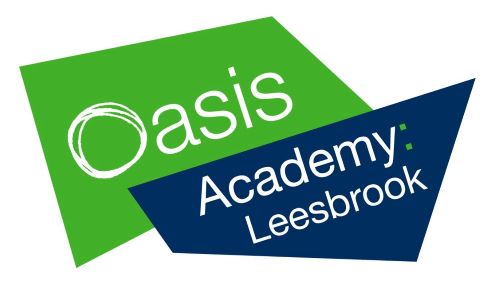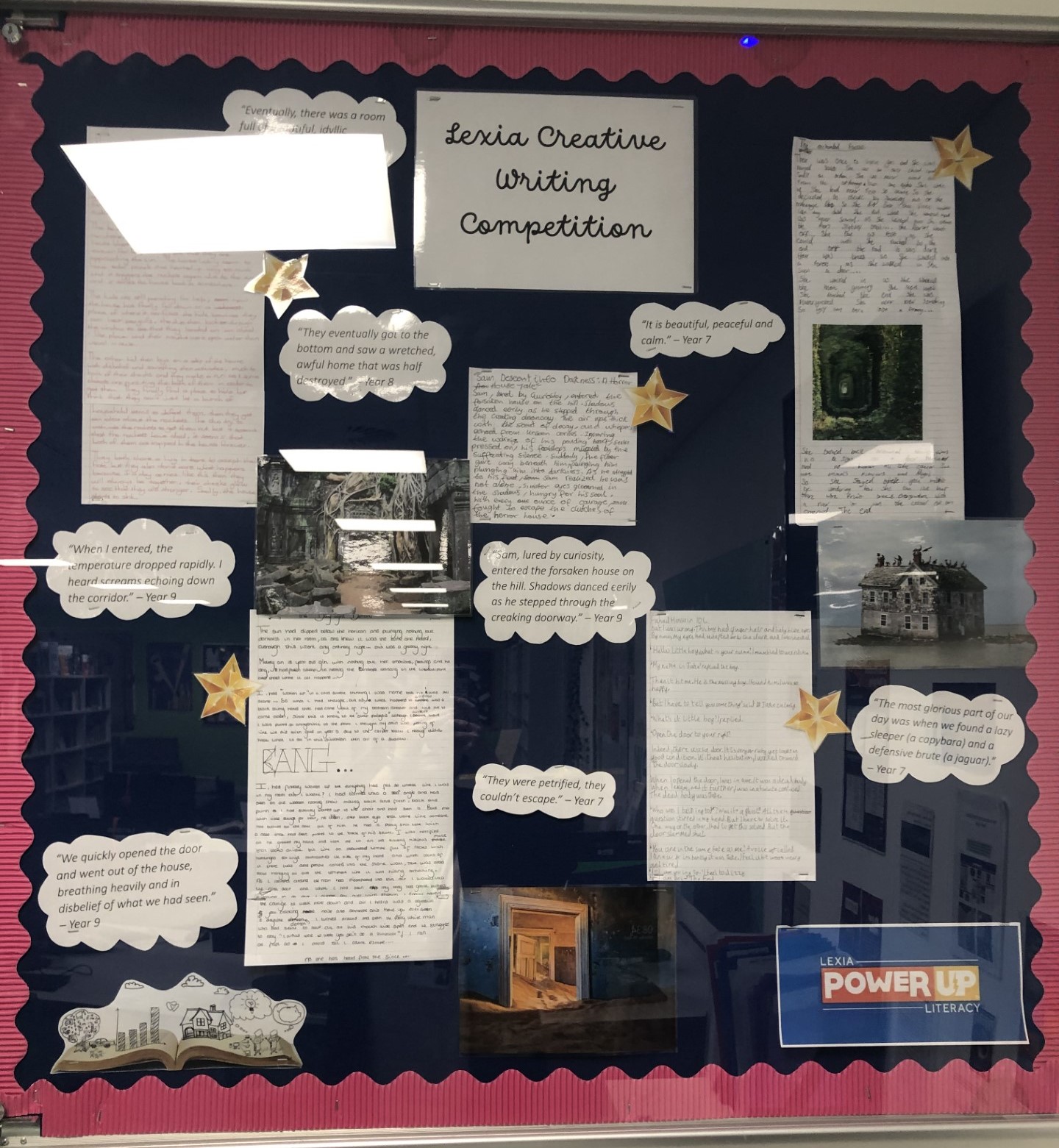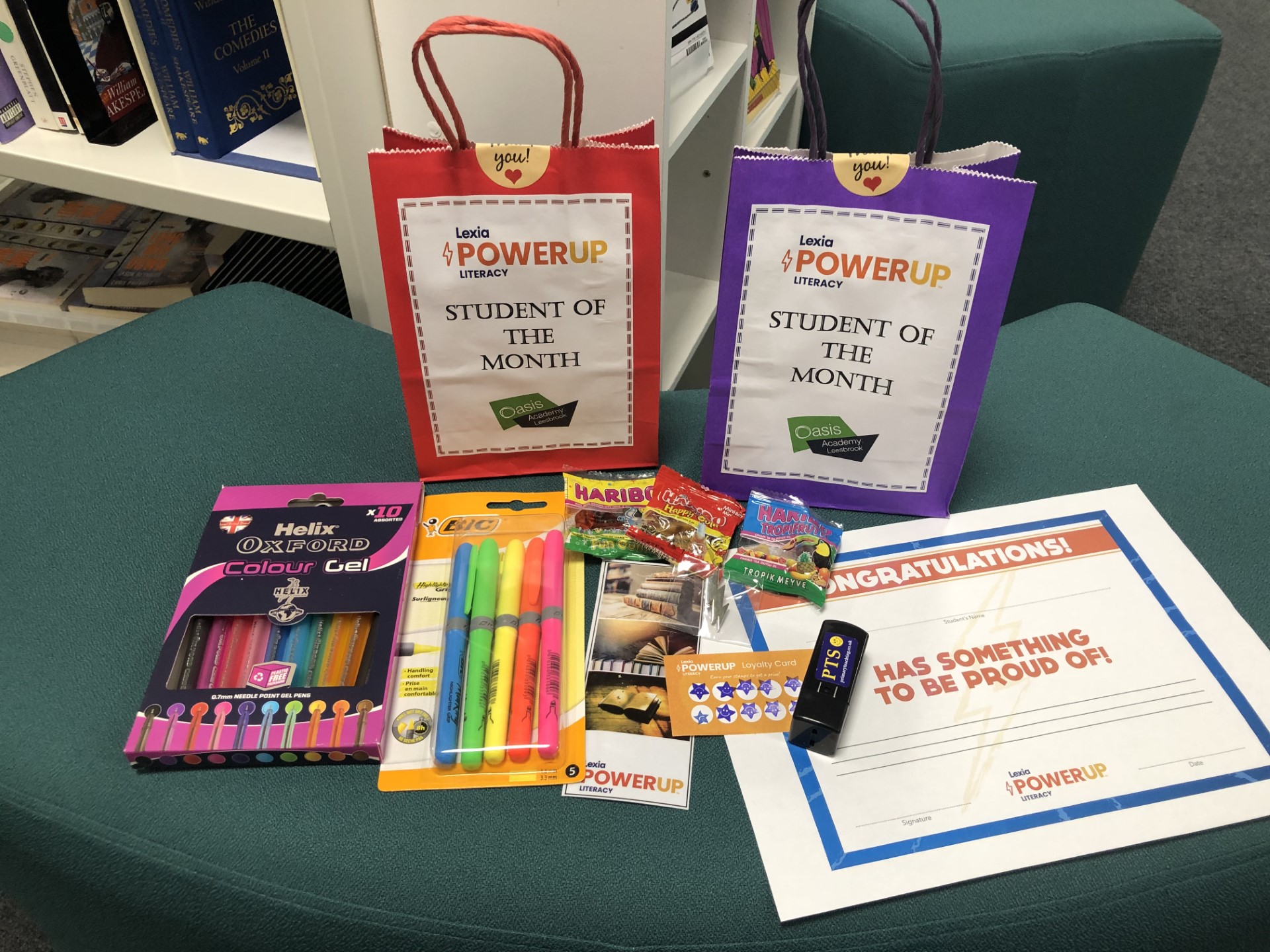Our Star School for May is…
Oasis Academy Leesbrook!
We spoke to Abbie Macguire and Beth Meacock who are reading tutors at the school. They have been able to successfully use Lexia PowerUp along with their Primary teaching experience to support pupils in Years 7 – 10 in boosting their literacy skills.
Read the full interview below.

What do you feel makes Lexia stand apart from other reading skills software products on the market?
Abbie: We are both primary trained so we have come across a lot of other reading programs. For us, we have found Lexia much better for tracking progress. Other programs have allowed pupils to work independently but I don’t feel like they gave me, as a teacher, the ownership of what they were doing like Lexia has. I can clearly see what they can do and what they have struggled with.
Beth: The fact that myLexia is so easy to navigate is a plus for me too. It gives such a precise, detailed run-down of each child’s individual progress. It is definitely one of the highlights of the program and what really sets it apart.
How is Lexia used in your school? Please provide details of your daily routine and how you ensure that you reach recommended usage as well as which pupils use the program in school.
Abbie: The students that use Lexia are based off the NGRT Assessment data that happens at beginning of the school year. We go through all the pupils and their reading ages and select those pupils who have a reading age 13 months below their chronological age. These pupils make up the Lexia cohort for that year and attend intervention sessions with us.
Beth: We run 4x 1 hour Lexia sessions per day on Monday and Tuesday and then on Wednesday, Thursday and Friday we have and additional morning for each group. Each group has 2 sessions per week and we see all year groups from Year 7 to Year 10 so it is used very widely in school. Lexia session take place in the library where we have computers and space available for the students to work on PowerUp.
Describe the impact that Lexia has had on your pupils. Have you noticed a positive change in their motivation to succeed in literacy?
Abbie: It’s given them the confidence to read out loud because, quite often, the pupils’ we see don’t always have the fluency to read confidently out loud. Through Lexia and the help and support they have received, it has given them a lot more confidence.
Beth: Yes. We ran a pupil voice just before Christmas and asked the pupils if they felt that Lexia has positively impacted them in other lessons. All of them reported that they had been able to apply their learning to English lessons as well as a few other subjects as well. Some of the said that they had been able to apply vocabulary knowledge they had gained through Lexia to Geography and other subjects.
Can you give an example of a Lexia success that sticks out to you?
Abbie: We have a Year 9 pupil that joined us in September with a reading age of below 10. He started the PowerUp program in the Foundational zone but has since completely finished the whole program! He has been very engaged with the Lexia sessions and has completed all of the homework we gave him and that effort can be clearly seen in his progress. This has also reflected in his reading age since we tested again in January.
Beth: He has actually achieved a higher reading age than his chronological age!
Abbie: We were blown away with the results! He really put the hours in, and now he no longer needs intervention, he is GCSE-ready and has caught up his reading skills according to his age.
How have you used rewards to motivate and celebrate success on the Lexia program?
Beth: Each session, we choose a ‘Student of the Session’ and they receive a Lexia certificate and a bag of sweets. We also have a ‘Student of the Week’ which is a school-wide award where we nominate someone to get a little goodie bag from the office.
Abbie: We also have a Student of the Month where we print and laminate all the level certificates they have achieved and present them with a goodie bag with sweets, pens and bookmarks. We also provide them with Lexia badges, we have ordered some lightning bolt badges that we put into the goodie bags as well. The students also get recognition on the school’s social media and on our website as well.
Abbie: Before Easter we also held a little creative writing competition during our lessons. It was the last week and students wanted to do something a little different. We gave them a brief e.g. to include adjectives, noun phrases etc and allowed them to choose a setting of their choice. We had loads of entries, but we managed to whittle it down to our top 5 and they won an Easter egg. We have since made this into a display in the library where we are based.

How useful have you found the myLexia reports in terms of demonstrating progression and informing planning?
Abbie: We keep track of the reports every day and check in on each of our groups. We have the classes organised on myLexia so it is easy to check in on each specific group as they are timetabled. We can see who is progressing and who needs additional support. The LexiaUK training session we had last week was really useful for this as well.
Beth: We got a few hints and tips that we had not yet come across such as how the Lexia lessons are assigned to pupils and how to find out how many attempts pupils had completed of a unit. We have found the progress data very helpful to inform who we choose as our Student of the Week and use the usage and units progress data to help us decide. It’s been very helpful to be able to keep track of that sort of detailed data.
Abbie: We also need to produce a spreadsheet of the data for the literacy team, so having it all there has been really helpful to keep us on track. We send the Parent Reports home in the Student of the Month packs so it’s nice to be able to update parents and for them to be able see the progress they are making and what level they are up to.
What main piece of advice would you give to a school that was just getting started with Lexia?
Beth: I think the main thing we would say is consistency is key. It works really well in our school because our roles are dedicated to delivering Lexia and we can ensure that pupils are getting access every single week.
Abbie: With us both coming from a Primary setting and having our own classes, we know how hard it can be to try and run various interventions alongside class teaching. It can be easy to lose track when you are juggling so many different things. Having trained members of staff responsible for Lexia has meant that it can be consistent, the kids know who to come to and can get into the routines needed to make progress. The fact that they can develop a positive relationship with their Lexia tutor has mean that engagement in the sessions has been high. Building those relationships is so important! Often, pupils at secondary that struggle with reading can be quite disengaged with lessons so it is important to make the sessions and those connections as positive as possible.

What main piece of advice would you give to a school that was just getting started with Lexia?
Beth: I think the main thing we would say is consistency is key. It works really well in our school because our roles are dedicated to delivering Lexia and we can ensure that pupils are getting access every single week.
Abbie: With us both coming from a Primary setting and having our own classes, we know how hard it can be to try and run various interventions alongside class teaching. It can be easy to lose track when you are juggling so many different things. Having trained members of staff responsible for Lexia has meant that it can be consistent, the kids know who to come to and can get into the routines needed to make progress. The fact that they can develop a positive relationship with their Lexia tutor has mean that engagement in the sessions has been high. Building those relationships is so important! Often, pupils at secondary that struggle with reading can be quite disengaged with lessons so it is important to make the sessions and those connections as positive as possible.
What feedback have you had from your Lexia pupils?
Beth: We will provide some quotes from our Pupil Voice questionnaire below but generally a lot of them have really enjoyed how calm the sessions are. We turn the lights down and try to keep the environment as calm and as positive as possible which has helped them work better on the program. They are nice, relaxed and in the zone when accessing Lexia so they have responded very well.
Here are some quotes from the pupils about the Lexia program:
Year 7 pupil: “It has helped me in English with my spelling. I found reading in front of other people hard because I can be quite shy, but Lexia has made me feel more confident to read to the class. “
Year 8 pupil: “I now know what a verb is etc. Also, I’ve started reading at home before bed because of Lexia. I didn’t really do that before.”
Year 9 pupil: “It’s especially made a difference in English. I didn’t know how to spell some words before but now I can.”
Year 8 pupil: “Word study helped me in English because we were reading Romeo and Juliet. We talked about dramatic irony which I had already learnt about in Lexia.”
Do you have any additional comments on why you feel Lexia has been successful in your school?
Abbie: I think for use, it has really opened our eyes at how important it is to nail the reading skills as early as possible to ensure they get that access to the curriculum. It has been great that they have been able to access the program independently without needing direct intervention from the teacher all the time. It really helps them take that ownership of it.
Beth: It’s nice as well how the units are quite short so they constantly feel like they are progressing and getting better. It doesn’t stay on one thing for too long so it really helps to maintain their attention and engagement for longer.
Abbie: The streaks have been great for this as well. The get a real kick out of building their streaks. It’s really interactive and engaging and we can see from a data perspective that it really has an impact too! It works!
